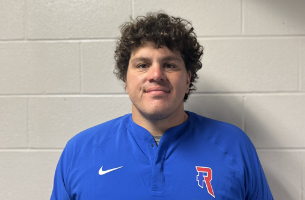(INDIANAPOLIS) – Indiana legislators legalized fantasy football gambling sites like FanDuel. But a lawsuit from a former IU wide receiver argues those games violate a different Indiana law:
Nick Stoner is one of three ex-college players arguing the use of their names and stat lines violates Indiana’s right of publicity law. Legislators passed that law in 1994, after a company sold a set of AIDS trading cards, including one of Ryan White. The law gives you control over your own name and likeness But a newscast can use your name if you make news.
FanDuel attorney Ian Gershengorn told the Indiana Supreme Court sports stats fall within that exception. He argues fantasy sports is just a 21st-century twist on a long history of poring over box scores and other publicly available statistics.
Attorneys for the players argue the sites are treating them as commodities and using their celebrity to draw in paying customers. Attorney William Holmes says DraftKings once included Northern Illinois running back Cameron Stingily on its webpage with a note telling fans they could “buy him…for a cheap price.” Attorney Todd McLawhorn argues the newsworthiness test applies not to Stingily or Stoner’s stats, but to the use of those stats in the fantasy game. The attorneys argue those rules apply only to the fantasy game, not the sporting event itself, and thus have no news value.
Under questioning from the justices, Holmes suggested the same distinction could potentially require the players’ consent to be used in a Trivial Pursuit question or a “prop bet” on the Super Bowl — betting on things like who will score the first touchdown rather than who will win.
Past cases have drawn fine distinctions. Former Brooklyn Dodger Al Gionfriddo unsuccessfully sued Major League Baseball over its use of film clips of his game-saving World Series catch of a Joe DiMaggio drive, and Los Angeles Rams defensive end Fred Dryer lost a suit over the use of his likeness by NFL Films. But Kareem Abdul-Jabbar won a lawsuit over an Oldsmobile ad which linked his three Most Outstanding Player awards in the NCAA tournament to the awards a car had received.
But although the fantasy-football suit is in federal court, it hinges on the proper interpretation of Indiana’s state law. An appeals court has asked the justices to give their view of the law, to guide the final decision on the case itself.
Gershengorn argued fantasy sports simply creates a competitive version of the debates sports fans have always had: “Who’s better, Maris or Mantle? Manning or Brady?”
To laughter from the courtroom, Justice Steve David interjected, “It’s Manning.”
(Photo: Michael Hickey/Getty Images)











